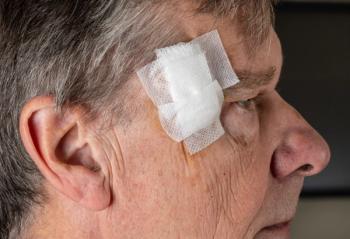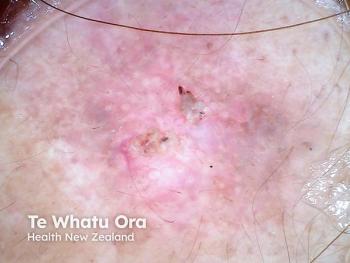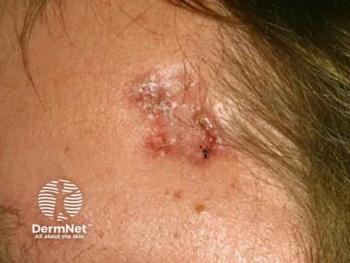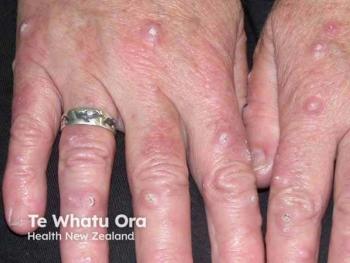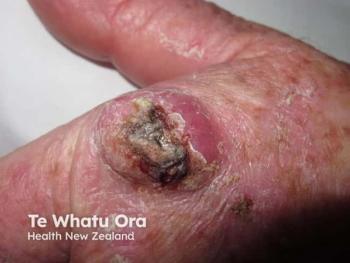
Diagnostic tests to assess mole genomics
At the Fall Clinical Dermatology Conference in Las Vegas, one practical talk with a lot of takeaways was a workshop on two types of diagnostic tests for mole genomics.
LAS VEGASâAt the Fall Clinical Dermatology Conference in Las Vegas, one practical talk with a lot of takeaways was a workshop on two types of diagnostic tests for mole genomics.
Led by Neal Bhatia, M.D., director of clinical dermatology at Therapeutics Clinical Research in San Diego, a research and dermatology clinic, the workshop involved a demonstration, pop quiz for participants on how to recognize 20 different types of moles, and a poll on how they would proceed with a given situation.
“I was asked to lead the workshop because I’m not a pathologist or a specialist, I’m a dermatologist like most others in the audience, and I show it’s possible to understand these technologies,” Dr. Bhatia said.
Both technologies have been around for a few years, but the emphasis here was on understanding their utility in diagnosing melanoma.
GENE EXPRESSION TEST
One is a pathology test for melanoma from Castle Biosciences, a skin cancer diagnostics company. When a physician sends a tumor for an assessment, a pathologist can order the DecisionDX test to look at mutations of the gene to see if it matches melanoma diagnostic genes.
The gene expression profile test is designed to identify high risk stage one and two patients based on biological information from 31 genes within their tumor tissue. This tumor-specific information will help inform both the physician and the patient on how aggressively they will need to manage the disease.
This can improve melanoma diagnosis, in addition to having the pathologist directly assess the tumor. Typical stage two patients may receive routine exams of the skin and lymph node, but may not be subjected to imaging scans of other organs, or considered for adjuvant therapy. If they were identified as having high risk, they may be escalated to active scrutiny or referred for drug therapy.
“No matter how experienced a pathologist, the diagnosis can be very complicated, so this test can help with diagnosis,” Dr. Bhatia said.
NON-INVASIVE ADHESIVE TAPE TEST
The second test is an alternative to invasive biopsies, Pigmented Lesion Assay, a tape stripping test from DermTech. The diagnostic assay test lifts skin cells from darkened skin lesions or moles with a strip of adhesive tape, avoiding the need for an expensive, surgical procedure to extract the same cells.
“We send the tape to the lab to look for mutations which tell us if the mole is typical or atypical,” Dr. Bhatia said. “This will give us enough information to tell us if the patient is a candidate of surgery, or biopsy, or if these are not options.”
He said this test works well for cosmetically sensitive areas, and when a patient has had a lot of moles removed and has biopsy fatigue. It can be done in the clinic and is covered by insurance to some degree. The assay test demonstrated 91 percent accuracy in identifying non-melanoma and melanoma lesions, with a sensitivity (true positive rate) of 91 percent and a specificity (true negative rate) of 69 percent, according to DermTech.
“If there’s a mole on the face or neck where it’s difficult to do biopsies without leave a scar, or if you’re concerned about whether such patients would benefit from biopsy or if it would be risky, this test is useful,” he said.
REFERENCE
Bhatia, N. (2018) Fall Clinical Dermatology Conference, Las Vegas. October 20, 2018. Using Non-Invasive Genomics to Assess Pigmented Lesions.
Newsletter
Like what you’re reading? Subscribe to Dermatology Times for weekly updates on therapies, innovations, and real-world practice tips.

